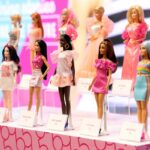
From LinkedIn headshots turned plastic-fantastic to TikTok avatars in power suits and pumps, the viral “AI Barbie” trend has taken social media by storm. Users across platforms are embracing Barbiecore by transforming themselves into glamorous AI-generated dolls — complete with aspirational captions like “This Barbie is a Cybersecurity Analyst” or “This Barbie passed the bar.” But as the trend surges in popularity, legal experts warn: this isn’t just a playful cultural moment — it’s a legal minefield.
Pop Culture Meets AI — and Intellectual Property
At the heart of the issue is the use of Barbie’s highly protected brand identity. Mattel, Inc. owns the trademark and copyright rights to everything from Barbie’s name and bright pink aesthetic to her distinctive style, packaging, and persona. AI tools replicating those features — particularly for commercial use — could run afoul of intellectual property laws.
“Anything resembling Barbie’s likeness that’s not authorized by Mattel could be considered copyright or trademark infringement,” legal experts caution, especially when influencers use AI Barbie images to monetize content or promote products.
The FTC and False Endorsement
The Federal Trade Commission (FTC) also has its eyes on the trend. Under its Endorsement Guidelines, influencers must clearly disclose when they use sponsored apps, affiliate codes, or any tool that might mislead consumers into believing the content is officially associated with Barbie or Mattel.
Failing to do so? That could count as deceptive marketing — a violation that may trigger enforcement actions.
Who Owns an AI Barbie?
Ownership of AI-generated content is another legal gray zone. U.S. copyright law currently protects works created by humans — not machines. This means that AI-generated Barbie avatars may not be eligible for copyright, leaving users in a legal limbo: they might not own what they create and could still be vulnerable to infringement claims from rights-holders like Mattel.
To make matters more complex, AI platforms such as Midjourney or OpenAI may assert usage rights through their terms of service, further muddying the waters.
Data Privacy: Your Barbie, Your Biometrics
The AI Barbie trend also raises serious concerns about privacy and cybersecurity. Most Barbie generators require users to upload facial images — data that qualifies as biometric and is strictly protected under laws like Illinois’ Biometric Information Privacy Act (BIPA), California’s CCPA/CPRA, and the EU’s GDPR.
Some apps fail to provide clear data use policies, store data on offshore servers, or leave users vulnerable to impersonation, scraping, or worse. Cybersecurity experts warn that the tools may lack essential protections, exposing users to identity theft, image injection malware, and unregulated data harvesting.
AI Governance: A Regulatory Storm Is Coming
While there’s currently no unified federal law in the U.S. regulating generative AI, momentum is building. States like California, Colorado, and Illinois have introduced laws addressing algorithmic bias and biometric data. The EU AI Act, set to take full effect in 2026, categorizes image generators as “high-risk,” demanding transparency, oversight, and ethical safeguards.
Legal professionals urge caution, especially for brands and developers eager to ride the AI Barbie wave.
How to Join the Trend — Safely
For content creators:
-
Avoid using Barbie’s name, logo, or recognizable traits unless licensed.
-
Disclose any paid partnerships clearly and prominently.
-
Choose AI tools with transparent data practices.
For developers:
-
Get legal review of training data.
-
Implement biometric disclosures and obtain explicit consent.
-
Enforce strong cybersecurity standards.
For brands and marketers:
-
Vet vendors for IP and privacy compliance.
-
Don’t reuse third-party Barbie content without proper rights.
-
Understand and follow advertising disclosure laws.
A Sparkly Warning
AI Barbie may be the cultural moment of the season — but beneath the glossy exterior lies a cautionary tale about the legal and ethical risks of merging pop culture with artificial intelligence.
As one expert put it: “The trend may be fun, but the law isn’t a dollhouse.”